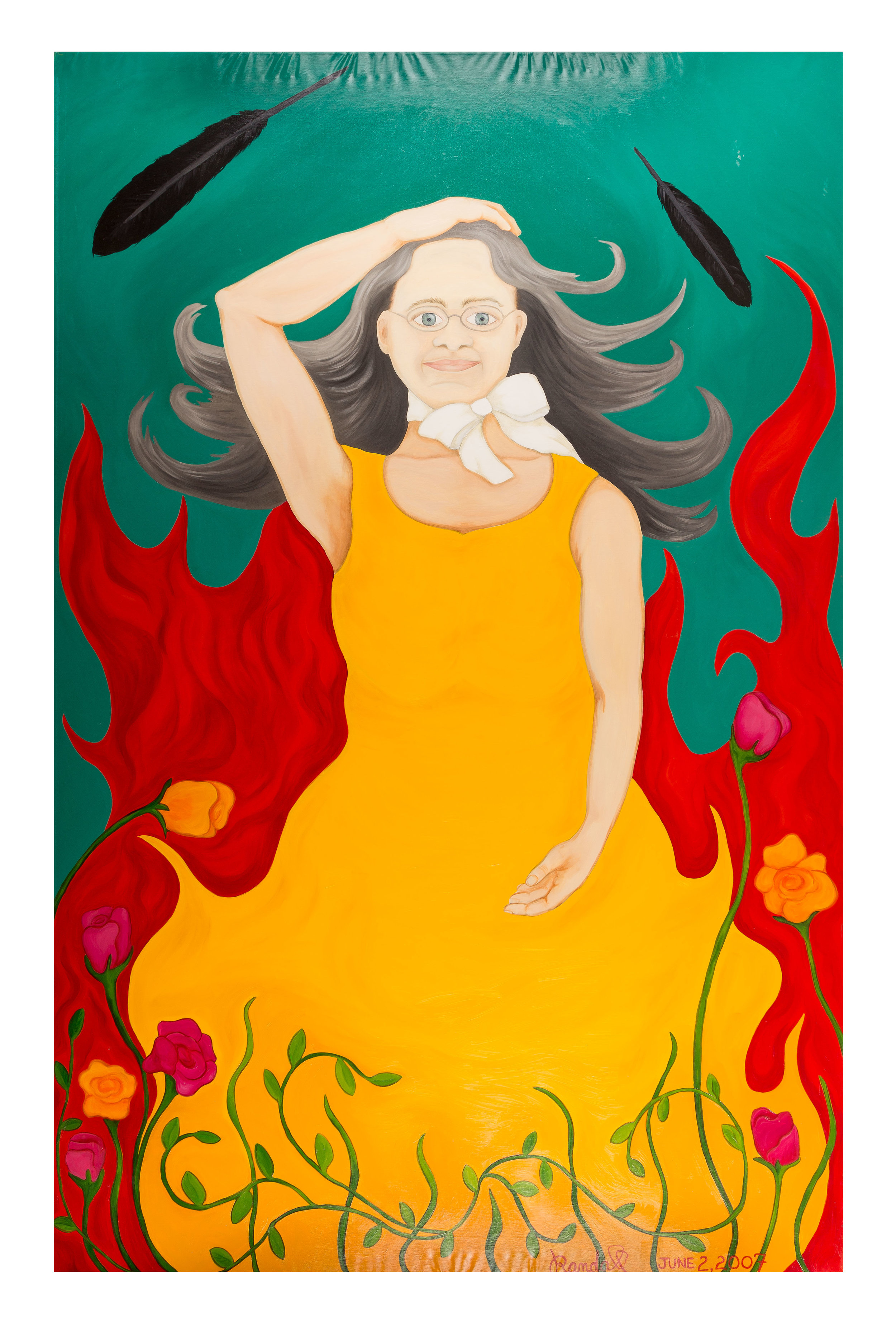Carrie Nation
Carrie Nation
Carrie Nation
Kansas Women
60” x 96”
Oil on Linen
In the collection of Lincoln Library, Medicine Lodge, Kansas
Born November 25th, 1846, Carrie Moore started a life of hardship and circumstance. She suffered from illness most of her childhood and her mother is said to have had delusions of being Queen Victoria. Carrie was often left in the care of the slaves on her fathers’ Kentucky farm. She took great pleasure in the beauty of the garden, the tales of the servants and the seeking of a spiritual life.
Her first love was Dr. Charles Gloyd. Against the wishes of her parents, and foreboding signs she felt she should have heeded, they were married. She was instantly disappointed. He being a severe alcoholic, they had a brief relationship and he died two years later, leaving Carrie a single mother with a daughter Charlien. She took care of her daughter and mother in law at a time of no rights for women and little opportunity.
Her crusade began at this time, in her heart, as she felt liquor attributed to much of her, and thousands of other households’, anguish.
Her second husband, Mr. Nation, many years older than she, seemed a sturdy choice, being a successful lawyer and minister. She was again disappointed and unhappy through her husband’s deception, lack of attention and disagreements. They moved to Texas to farm, where Carrie ended up running a boarding house. Again they moved, this time to Medicine Lodge after threats on Mr. Nation’s life. He later filed for divorce on grounds of abandonment. Carrie was not the perfect housewife he had counted on.
Her time and energy caring for the poor and ruined lives of others, gave birth to her name, Mother Nation.
Known for her “Hatchetations,” temperance, destruction of saloons and speaking out against the hazards of whiskey, she changed her name spelling to Carry, and trademarked with her middle initial A, and last name Nation, to symbolize that she and her movement would “Carry A. Nation” and free it from alcohol. Carrie was always trying to help others. She was beat up, shot at, publicly humiliated by the press, and men everywhere, but she stayed true to her vision. Her work was with the poor, the abandoned mothers and children, and with women’s rights. She spoke out about not wearing corsets, and about women owning property. Standing almost 6 feet tall, with hatchet and Bible, in a black dress, she burned her image into History.
I chose to paint Carrie Nation in the style of a Mexican Santos. She is depicted as full woman, feminine, glorious, rising from the flames of her burdens.

